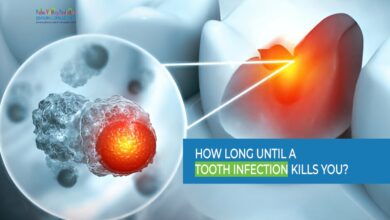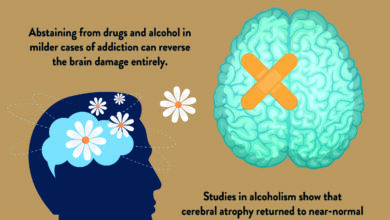Poison Testing Kits: The Ultimate Guide to Ensuring Safety and Peace of Mind

Introduction
Have you ever worried about the safety of your environment or the products you consume? With increasing awareness about toxins and contaminants, poison testing kits have become essential tools for ensuring safety and peace of mind. This comprehensive guide will delve into everything you need to know about poison testing kits, from their importance and functionality to how to choose and use them effectively.
What Are Poison Testing Kits
Definition and Purpose
Poison testing kits are specialised tools designed to detect the presence of harmful substances in various environments, including households, workplaces, and natural settings. These kits can identify a wide range of toxins, from chemical poisons to biological contaminants, ensuring that the spaces we live and work in are safe.
Different Types of Poison Testing Kits
Various types of poison testing kits are available, each tailored to detect specific poisons. Some of the most common include:
Household Poison Testing Kits: These are used to detect substances like lead, mercury, and other toxic chemicals.
Environmental Poison Testing Kits: Used to identify pollutants in air, water, and soil.
Food and Beverage Testing Kits: Designed to detect contaminants like pesticides, bacteria, and other harmful agents in consumables.
Biological Poison Testing Kits: These are used to identify toxins produced by living organisms, such as venom or bacterial toxins.
The Need for Poison Testing Kits
Common Scenarios Requiring Poison Testing
Poison testing kits are crucial in various scenarios, such as:
Accidental Exposure: When someone comes into contact with a potential poison, quick testing can prevent severe health consequences.
Routine Safety Checks: Regular testing in homes and workplaces ensures ongoing safety.
Environmental Monitoring: Detecting pollutants in natural settings helps in preserving public health and the environment.
Historical Context and Modern Relevance
Historically, the detection of poisons was a complex process requiring sophisticated equipment and expert knowledge. Today, advancements in technology have made poison testing kits accessible and easy to use, making them relevant for modern safety practices.
Types of Poisons Detected by Testing Kits
Household Poisons
Common household poisons include substances like:
Cleaning Agents: Bleach, ammonia, and other chemicals found in cleaning products.
Heavy Metals: Lead, mercury, and arsenic are often found in older homes and products.
Environmental Toxins
These include:
Air Pollutants: Carbon monoxide, asbestos, and particulate matter.
Water Contaminants: Pesticides, heavy metals, and microbial toxins.
Food and Beverage Contaminants
Testing kits can detect:
Pesticides: Residues on fruits, vegetables, and grains.
Pathogens: Bacteria like E. coli and Salmonella in food and water.
Biological Poisons
These include toxins from:
Venomous Animals: Snakes, spiders, and certain insects.
Toxic Plants and Fungi: Poison ivy, mushrooms, and other harmful flora.
How Poison Testing Kits Work
Basic Mechanism
Poison testing kits typically operate on the principle of chemical reactions. When a sample is introduced to the kit, it reacts with specific reagents, producing a colour change or other indicators that signify the presence of toxins.
Chemical Reactions and Indicators
Different kits use various indicators such as:
Colourimetric Changes: A colour change that indicates the presence of a specific poison.
Electrochemical Sensors: Devices that measure electrical changes caused by toxins.
Advanced Technologies in Poison Detection
Modern kits often incorporate advanced technologies like:
Spectroscopy: For detecting and analyzing substances at a molecular level.
DNA-Based Detection: Identifying biological toxins through genetic markers.
Choosing the Right Poison Testing Kit
Factors to Consider
When selecting a poison testing kit, consider the following:
Type of Toxins: Ensure the kit is designed to detect the specific toxins you are concerned about.
Ease of Use: Look for kits with clear instructions and easy-to-read results.
Sensitivity and Accuracy: Check reviews and specifications to ensure reliable detection.
Popular Brands and Their Features
Some trusted brands include:
First Alert: Known for its user-friendly design and comprehensive detection capabilities.
WaterSafe: Specializes in water testing kits with high sensitivity to contaminants.
3M: Offers a range of professional-grade testing kits for various environments.
Comparing Home Kits vs. Professional Kits
Home kits are typically designed for ease of use and affordability, making them suitable for personal use. Professional kits, on the other hand, offer higher accuracy and sensitivity and are often used by experts in fields like environmental science and industrial safety.
Step-by-Step Guide to Using a Poison Testing Kit
Preparing for the Test
Read Instructions: Always start by thoroughly reading the kit’s instructions.
Gather Samples: Collect samples from the area or item you wish to test.
Wear Protective Gear: Use gloves and masks if recommended.
Conducting the Test
Add Reagents: Introduce the provided reagents to your sample.
Wait for Reaction: Allow time for the chemical reaction to occur.
Observe Results: Check the indicators, such as colour changes, against the provided chart.
Interpreting Results
Carefully compare the test results with the reference guide included in the kit to determine if toxins are present.
Safety Precautions
Proper Disposal: Dispose of all materials safely according to the kit’s guidelines.
Avoid Contamination: Ensure that samples and reagents do not mix with other substances.
Benefits of Using Poison Testing Kits
Immediate Detection
Poison testing kits provide rapid results, allowing for quick action to mitigate any risks.
Cost-Effectiveness
They offer an affordable alternative to professional testing services, making safety accessible to everyone.
Peace of Mind
Knowing you can test for poisons at any time brings a significant level of reassurance, particularly for households with children or pets.
Limitations and Challenges
Accuracy Concerns
While generally reliable, some kits may produce false positives or negatives. It’s essential to follow instructions precisely.
False Positives and Negatives
Environmental factors and improper use can affect test accuracy. Confirming results with a professional lab may sometimes be necessary.
Proper Storage and Handling
Store kits in a cool, dry place to maintain their effectiveness, and handle all components carefully to avoid contamination.
Case Studies: Real-Life Applications
Household Incidents
A family used a household poison testing kit to detect and address a mercury spill, preventing potential health issues.
Industrial Applications
Factories use poison testing kits to monitor air quality and ensure a safe working environment for employees.
Environmental Assessments
Environmental agencies employ these kits to detect and manage pollutants in natural water bodies, protecting wildlife and public health.
Innovations in Poison Testing Kits
Recent Technological Advances
New technologies are making kits more sensitive and user-friendly, such as smartphone-compatible kits that provide digital readouts and analysis.
Future Trends in Poison Detection
Future developments may include more comprehensive multi-toxin kits and integration with IoT (Internet of Things) for real-time monitoring.
DIY Poison Testing Kits: Are They Effective
Making Your Testing Kit
Some enthusiasts create DIY poison testing kits using household items, though these are typically less reliable than commercial kits.
Pros and Cons
Pros: Cost-effective and customizable.
Cons: Often need more precision and reliability compared to professionally manufactured kits.
Regulations and Standards
Government Guidelines
Governments provide guidelines on acceptable toxin levels in various environments, influencing the design and use of testing kits.
Safety Standards and Certifications
Certified kits meet stringent safety and efficacy standards, ensuring reliable performance.
Where to Buy Poison Testing Kits
Online Marketplaces
Websites like Amazon and specialized online stores offer a wide range of poison testing kits, often with user reviews to guide your choice.
Local Pharmacies and Specialty Stores
Pharmacies and stores specializing in safety equipment also carry these kits, providing an opportunity for in-person advice and purchase.
Conclusion
Poison testing kits are invaluable tools for maintaining safety in various settings, from homes to industrial environments. By understanding how they work, choosing the right kit, and using it correctly, you can ensure the well-being of yourself and those around you. As technology advances, these kits will only become more effective and accessible, making safety an ever-evolving field.




